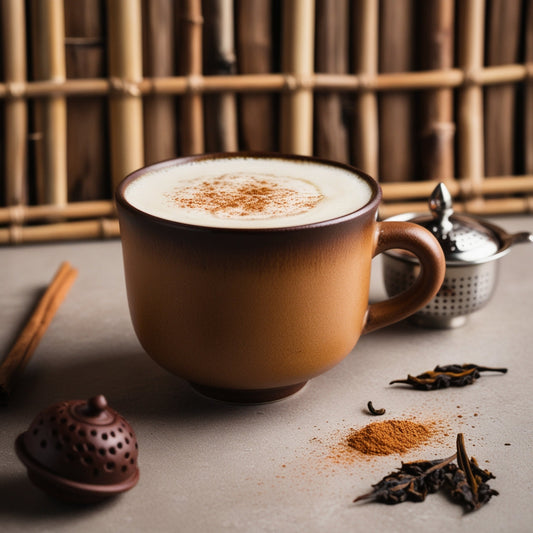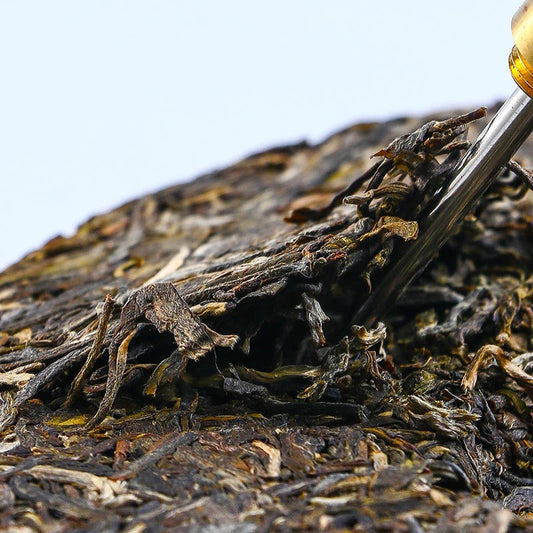Overview
Curious about how green tea can improve your skin and help with weight loss?
Green tea is a versatile choice, packed with antioxidants and beneficial compounds. In this guide, we’ll explore the different types of green tea, their benefits, and how to choose the best one for your needs, including the options available in UK. By the end, you'll have the information about how green tea helps in health and skin.
Table of Contents
- Introduction
- What is Green Tea?
- Benefits of Green Tea
- Types of Green Tea
- Which Green Tea is Best for Skin?
- Which Green Tea is Best for Weight Loss?
- Which is the Best Green Tea in the UK?
- What are the Side effects of Green tea
- Conclusion
Introduction
Green tea boasts a long history and tradition, and people have cherished it for centuries due to its numerous health benefits and soothing qualities. This tea originated in China and has spread across the globe, becoming a staple in many households. Its unique processing method preserves high levels of antioxidants and nutrients, distinguishing it from other types of tea.
What is Green Tea?
Green tea comes from the leaves of the Camellia sinensis plant, the same plant used to produce black and oolong tea. What sets green tea apart is its minimal oxidation during processing. After harvesting, producers quickly steam or pan-fire the leaves to prevent oxidation, preserving their green color and high concentrations of beneficial compounds.
Processing and Preparation
The minimal processing helps to maintain its natural antioxidants, including catechins and polyphenols. These compounds play a crucial role in the health benefits linked to green tea. In Japanese green teas, such as Sencha, producers commonly use steaming to halt oxidation. In contrast, Chinese green teas, like Dragon Well, often undergo pan-firing. This difference in preparation contributes to the distinct flavors and aromas of green tea varieties.
How Green Tea is Different from Other Teas
Green tea differs from black and oolong tea primarily in its processing. Specifically, black tea undergoes full oxidation, which gives it a dark color and rich flavor. In contrast, oolong tea is partially oxidized, falling somewhere between green and black tea in terms of flavor and color. Consequently, the unique processing of green tea ensures it retains more of its natural antioxidants and a lighter, fresher flavor.

Benefits of Green Tea
Green tea earns recognition for its wide range of health benefits. Moreover, its rich content of antioxidants and other bioactive combpounds contributes to its status as a superfood. Here are some of the most notable benefits:
1. Antioxidant Protection:
It is rich in antioxidants, which help protect cells from damage caused by harmful molecules known as free radicals. These antioxidants support overall health and can reduce the risk of chronic diseases. The primary antioxidants such as EGCG (Epigallocatechin Gallate), play a significant role in this protective effect.
2. Heart Health:
Regular consumption of this tea has been linked to improved cardiovascular health. Moreover, it can help reduce levels of LDL (bad) cholesterol and increase HDL (good) cholesterol. Additionally, it may improve blood vessel function and lower blood pressure, contributing to a healthier heart.
3. Weight Management:
It can aid in weight management by boosting metabolism and enhancing fat oxidation. Especially, the combination of caffeine and catechins has been shown to increase calorie burning and improve metabolic rate. Additionally, this makes it a valuable addition to a weight loss or management plan.
4. Skin Health:
The antioxidants can benefit the skin by reducing inflammation and fighting signs of aging. Additionally, it's polyphenols help improve skin elasticity, reduce redness, and protect against UV damage. Regular consumption or topical application of green tea can lead to healthier, clearer skin.
5. Mental Alertness:
Green tea contains caffeine and L-theanine, an amino acid that can enhance cognitive function. Furthermore, this combination improves focus, attention, and mental clarity. L-theanine also helps manage stress, promoting a calm but alert state of mind.
6. Digestive Health:
This tea can support digestive health by promoting a healthy balance of gut bacteria and aiding digestion. Studies suggest that the anti-inflammatory properties help soothe the digestive tract and can alleviate symptoms of digestive disorders.
Types of Green Tea
This tea comes in several varieties, each with its unique flavor profile and benefits. Understanding these types can help you choose the best one for your preferences and health goals:
1. Matcha:
Matcha is a powdered version made from finely ground whole tea leaves. It has a rich, umami flavor and is known for its high concentration of antioxidants and nutrients. Matcha provides a potent health boost and can be used in various recipes and beverages.
2. Sencha:
Sencha is one of the most popular teas in Japan. It has a balanced flavor with a slightly grassy or vegetal taste. Sencha offers moderate caffeine content and is suitable for daily consumption. Its benefits include antioxidant protection and support for overall health.
3. Gyokuro:
Gyokuro is a high-quality Japanese tea that is shade-grown to enhance its flavor and increase chlorophyll content. This tea has a sweet, delicate taste and is rich in antioxidants. It is ideal for those seeking a premium tea experience.
4. Hojicha:
Hojicha is a roasted green tea with a distinct nutty flavor and lower caffeine content compared to other green teas. The roasting process gives Hojicha a unique taste and makes it a great option for those who prefer a milder tea.
5. Bancha:
Bancha is made from older tea leaves and stems, resulting in a robust flavor and lower caffeine content. It is a good choice for those seeking a less intense tea that still offers health benefits.
6. Dragon Well:
This Chinese tea is known for its flat, sword-shaped leaves and nutty, slightly sweet flavor. Dragon well is one of the most famous ones and is prized for its high-quality taste and health benefits.
7. Jasmine Green Tea:
Jasmine green tea is infused with jasmine flowers, giving it a fragrant, floral aroma. The tea combines the benefits of green tea with the soothing qualities of jasmine, making it a pleasant and healthful option.
Which Green Tea is Best for Skin?
For skin health, Matcha and Gyokuro are particularly beneficial. Matcha is rich in antioxidants, including EGCG, which help protect the skin from damage caused by free radicals. These antioxidants can reduce inflammation and improve skin texture, leading to a clearer and healthier complexion. The high concentration of nutrients in matcha also supports skin rejuvenation and combats signs of aging.
Gyokuro, with its high chlorophyll content, offers detoxifying benefits that can improve skin health. Chlorophyll helps cleanse the body of toxins, which can reflect positively on the skin. This tea’s delicate flavor and rich nutrient profile make it an excellent choice for maintaining youthful and radiant skin.
Which Green Tea is Best for Weight Loss?
When it comes to weight management, Sencha and Matcha are top choices. Sencha provides a moderate caffeine boost and antioxidants that enhance metabolism and fat burning. Its balanced flavor and health benefits make it a popular option for those looking to support their weight loss efforts.
Matcha, with its high concentration of antioxidants and caffeine, is particularly effective for weight management. The combination of these compounds increases metabolic rate and promotes fat oxidation, aiding in weight loss. The versatility of matcha also allows it to be incorporated into various recipes and drinks, providing a convenient way to boost your weight management routine.
Which is the Best Green Tea in the UK?
In the UK, the best options are those that offer high-quality, fresh flavors and health benefits. While specific brands are not mentioned, it's essential to choose that has been well-reviewed and sourced from reputable suppliers. Matcha and Sencha are popular choices known for their exceptional health benefits and flavor profiles. Look for green tea that is certified and free from additives to ensure you are getting the best quality.

Conclusion
Green tea is a versatile and health-enhancing beverage that supports skin health, weight management, and overall well-being. By understanding the various types and their specific benefits, you can make informed choices that align with your health goals. Whether you’re looking for the best green tea for skin health, weight loss, or top options available in the UK, selecting high-quality green tea can lead to significant improvements in your overall wellness. Curious about exploring other exceptional teas? Discover the rich, complex flavors and unique health benefits of Pu-erh tea.
Q&A Section
Q1. What makes green tea different from other types of tea?
A1. It is distinct due to its minimal oxidation during processing, which preserves its natural antioxidants and green color. Unlike black tea, which is fully oxidized, or oolong tea, which is partially oxidized, this tea maintains a lighter flavor and higher levels of beneficial compounds.
Q2. How can green tea benefit my skin?
A2. It can improve skin health through its high levels of antioxidants, particularly EGCG, which help combat free radicals and reduce inflammation. These benefits can lead to clearer skin, enhanced elasticity, and protection against UV damage.
Q3. What should I look for when choosing green tea in the UK?
A3. When selecting green tea in the UK, prioritize freshness and quality. Look for reputable suppliers and consider popular varieties like Matcha and Sencha, which are known for their health benefits and rich flavors. Ensure the tea is free from additives and has good reviews.






